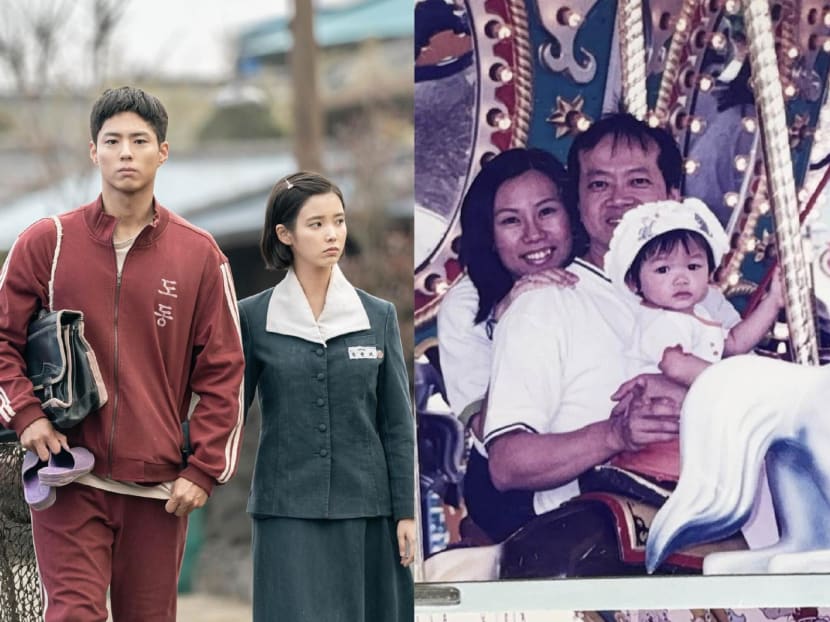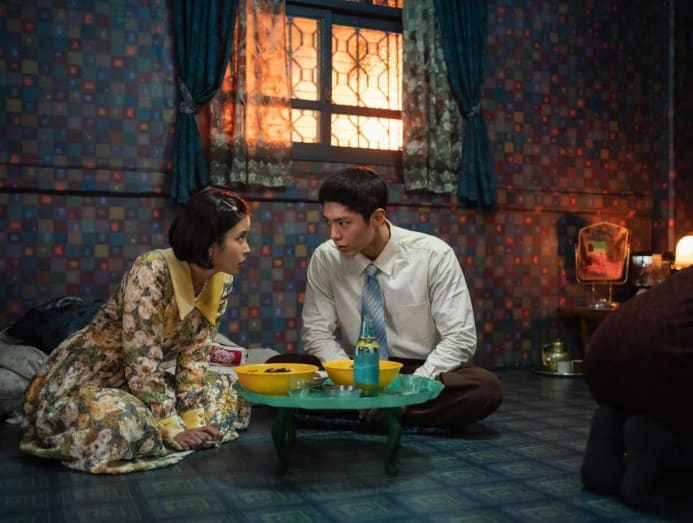When love becomes control – what the hottest K-drama today gets right about family and sacrifice
In many Asian cultures, the concept of “family first” is often ingrained in people from an early age. Ms Nicole Chan examines what this really asks of individuals – love and respect or blind submission?

Left: A still from South Korean drama When Life Gives You Tangerines. Right: A baby photo of Ms Nicole Chan featuring her father Chan CH and her mother Janet Lim. (Photos: Netflix, Nicole Chan)

This audio is generated by an AI tool.
But beyond my tears, I found myself relating to the invisible struggles of the series’ protagonists Yang Gwan-sik (played by actor Park Bo-gum) and Oh Ae-sun (singer-actress IU), who spend decades carrying the harmful, sometimes toxic, weight of family expectations and pressures.
In many Asian cultures, family harmony is often held up as the thing to be preserved at all costs. The concept of “family first” is often ingrained from an early age – at dinner tables, holiday gatherings and in moments of conflict.
As I get older, though, I find myself questioning what this phrase really asks of us.
It’s meant to instil loyalty, responsibility and the idea that no matter what happens, family is our foundation.
And yet, when an elder makes a hurtful comment? Let it go. A family member treats us unfairly? Don’t confront them.
So whenever we invoke “family first”, are we fostering relationships built on mutual respect or are we simply demanding compliance in the name of tradition?

DOES LOYALTY MEAN ACCEPTING MISTREATMENT?
Many years ago, a close relative of mine married into a traditional family, one that prides itself on tight-knit bonds and unwavering loyalty.
Yet from the moment she entered, she felt like an outsider. She wasn’t from the same place and didn’t speak their “language”, both metaphorically and literally.
She found herself on the receiving end of subtle jabs, criticisms and constant judgment, much like Tangerines' heroine Ae-sun did when she married into Gwan-sik’s family.
No matter how hard she tried, she remained on the fringes. When she tried to set boundaries, she was met with cold disapproval. Instead of being welcomed, she was tolerated.
The message was clear: She would never truly belong.
In traditional family structures, in-laws are often expected to assimilate rather than be accepted on their own terms, a 2008 study found. When they resist or express discomfort, they are frequently labelled as “difficult” or “not understanding family values”.
He struggles with feeling like he is never good enough, always second-guessing his worth not just within his family but in every aspect of his life.
He tends to get defensive, even in situations where there is no direct criticism. It was an instinct honed by years of bearing the brunt of judgment and disapproval, spoken and unspoken.
His is not an isolated experience. Studies show that people who feel like outsiders in their own families – whether due to gender roles, favouritism or differing values – are more likely to struggle with long-term emotional distress, including self-esteem and mental health issues.
Some family ties become sources of pain rather than support.
Some relationships become transactional, where love is conditional and acceptance is only given to those who comply unquestioningly with the rules.
THE WEIGHT OF TRADITION
I’ve had my own experiences feeling like an outsider in certain family settings, where my individual choices or opinions didn’t align with the group’s norm.
My parents grew up in a time when “family first” was synonymous with obedience: Elders set the tone and younger generations follow without question.
They’ve shared with me stories of duty and sacrifice, how their parents and grandparents worked tirelessly, often at the cost of their own happiness, to keep the family together.









